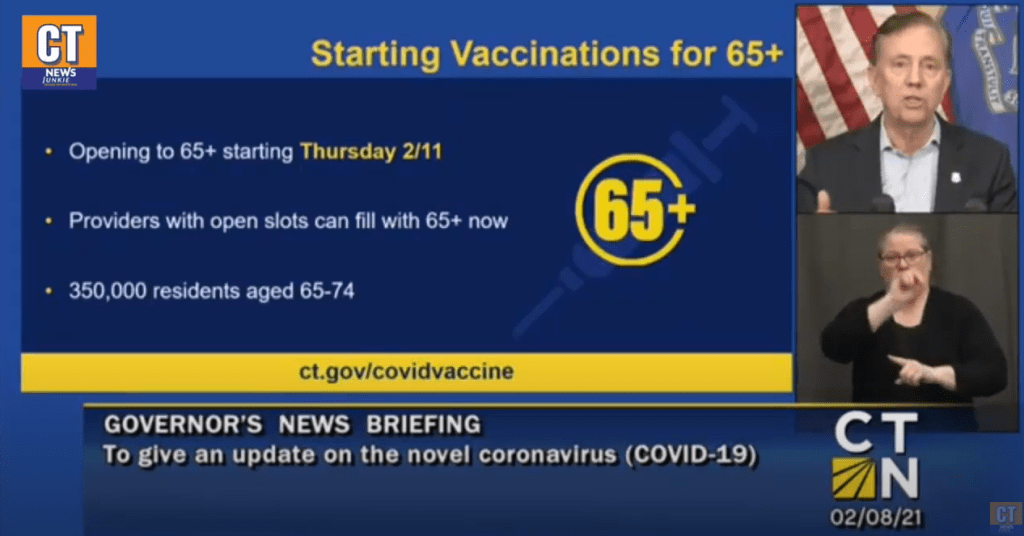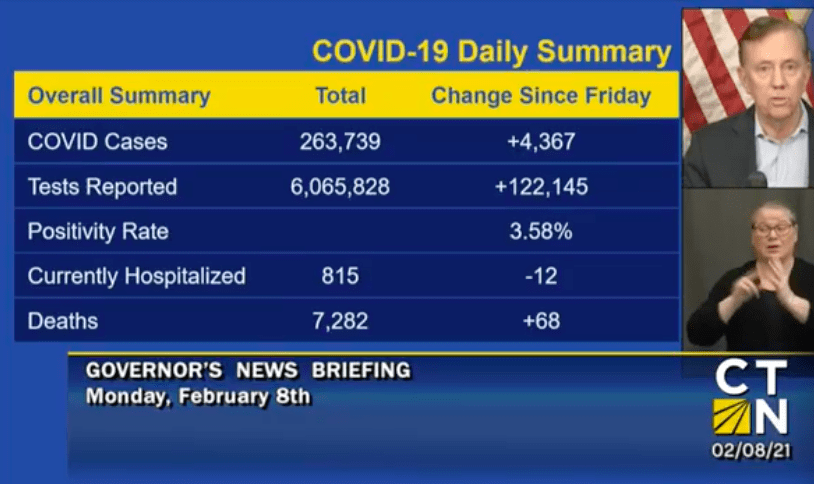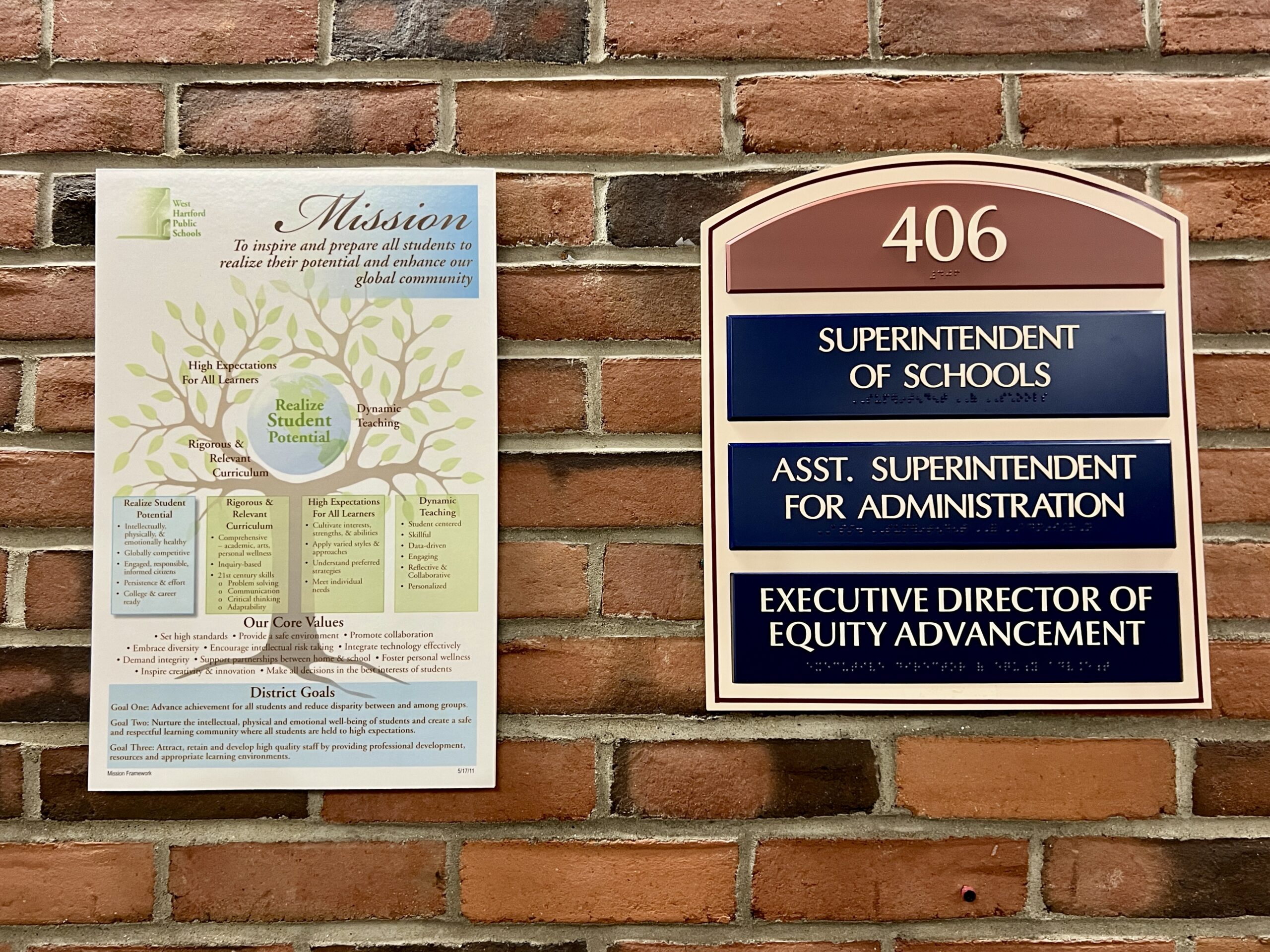Vaccination Opens Thursday to 65 and Up

Audio By Carbonatix

Executive Order shielding nursing homes from liability will expire March 1.
By Hugh McQuaid, CTNewsJunkie.com
Connecticut residents between the ages of 65 and 74 are being vaccinated on an “ad hoc” basis against the COVID-19 virus and can begin making vaccination appointments on Thursday, Gov. Ned Lamont said Monday.
The announcement adds roughly 350,000 people to the number of residents eligible to get the vaccine. Lamont said he expects it to take about a month for everyone in the age bracket who wants a vaccine to receive their first doses. As of Monday, more than 387,000 residents had received at least their first doses of the vaccine.
“If you really want to deal with fatalities, if you want to deal with hospitalizations, it makes the most sense. People 65 and older, sadly, are more likely to have comorbidities so it makes sense on a whole bunch of different fronts,” the governor said.
Before Monday’s addition, the vaccine had been available to frontline health care providers, nursing home and assisted living facility residents, and people at least 75 years old. During the press conference, Lamont reported that 56% of that upper age bracket had received their first doses of the vaccine. He said the state was moving to open eligibility because participation was beginning to lag.
“We want to make sure we’re putting the vaccines to use. At a certain point when you go through that demographic, fewer people of that age group … are coming forward. We want to make sure every vaccine has a use,” he said.
To that end, Lamont said providers have already begun vaccinating some people between 65 and 74 if they found themselves with extra doses on hand. Josh Geballe, Lamont’s chief operating officer, said some of those early vaccinations took place in senior housing complexes located in cities. “It made a lot of sense, especially in some of the communities we’re really trying to get to quickly.”
Lamont, who is 67 years old, said he expects to receive his first dose shortly. “I’m in the next week or so if everything works out,” he said.
During the press conference, Lamont reported a continued decline in most of the indicators used to track the severity of the virus situation in Connecticut. The positivity rate was at 3.58% through the weekend and the number of residents hospitalized with the virus dropped by 12 patients, bringing the statewide total to 815. Since Friday, another 68 residents died of the virus.

There were 62 additional positive cases among West Hartford residents over the past three days according to data released Monday.
As a result of the improving picture, Lamont said he has decided not to renew an executive order which had shielded nursing homes in Connecticut from lawsuits related to COVID-19. The governor said the order would expire on March 1.
“Early on we said, ‘You’re not going to be subject to lawsuits,’ because we thought there was too much changing – too much uncertainty in terms of what was going on with COVID back during the spring. That’s not the case during February. It’s a different situation, so people should be held accountable,” he said.
The Connecticut AARP and other advocates have been pushing Lamont to repeal the civil immunity order for months. They have cited the state’s successful effort to vaccinate most of the residents of Connecticut nursing homes in the initial phase of its rollout.
“I am very pleased Governor Lamont has decided it is time to put nursing home residents and their families first,” Nora Duncan, state AARP director, said in a statement. “AARP Connecticut applauds the state’s successful efforts to prioritize nursing home residents in its vaccine rollout and thanks Governor Lamont for his decision to repeal civil immunity for nursing homes.”
In a statement, the presidents of two associations representing Connecticut nursing homes and assisted living facilities said Lamont should extend the order.
“The two nursing home associations are reviewing the new executive order, but continue to hold to the position that the limited liability provisions remain good public policy and should be extended along with the public health emergency,” said Matt Barrett, president of the Connecticut Association of Health Care Facilities and Mag Morelli, president of LeadingAge Connecticut.
Republished with permission from CTNewsJunkie.com, all rights reserved.
Like what you see here? Click here to subscribe to We-Ha’s newsletter so you’ll always be in the know about what’s happening in West Hartford! Click the blue button below to become a supporter of We-Ha.com and our efforts to continue producing quality journalism.



